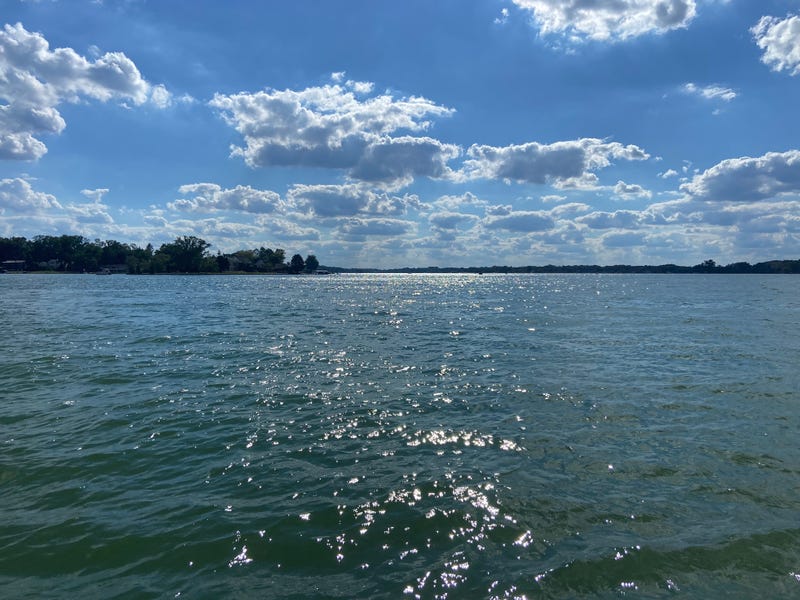
(WWJ) - Over a dozen beaches in Michigan -- including several in Metro Detroit -- have closures or advisories in effect heading into the holiday weekend after officials say high levels of bacteria were detected.
According to the Michigan Department of Environment, Great Lakes and Energy's BeachGuard monitoring system, 17 locations total are under advisories or closures on Thursday morning after testing showed unsafe amounts of E.coli levels in the water, mostly due to storm runoff or wildlife contamination.
In Metro Detroit, that includes Haynor Lake in Hamburg Township, Eagle Lake in Waterford, Duck Lake in Highland Township, Lake St. Clair Metropark Beach in Harrison Township, St. Clair Shores Memorial Park Beach in St. Clair Shores and Lakeside Beach.
Additional locations in Arenac, Roscommon, Cheboygan, Schoolcraft and Benzie counties were also identified on the EGLE's list, including Otter Creek which touches several popular hiking trails near Sleeping Bear Dunes in West Michigan.
The complete list is as follows:
Haynor Lake - Hamburg Fitness Center & Camp - Livingston County
Indian Lake - Indian Lake State Park - Schoolcraft County
Eagle Lake - Lakeland Estates - Oakland County
Duck Lake - Axford Acres - Ramada Road - Oakland County
Lake St. Clair - H.C.M.A. - Lake St. Clair Metropark Beach - Macomb County
Lake St. Clair - St. Clair Shores Memorial Park Beach - Macomb County
Saginaw Bay-Lake Huron - Singing Bridge Beach - Arenac County
Saginaw Bay-Lake Huron - Arenac County Park - Arenac County
Lake St. Helen - Richfield Township Public Fishing Site - Roscommon County
Houghton Lake - Denton Township Public Beach - Roscommon County
Houghton Lake - Lakeview Waterfront Park - Roscommon County
Houghton Lake - Houghton Lake Heights - Roscommon County
Lake Huron - Cheboygan State Park Duncan Bay - Cheboygan County
Mullet Lake - Aloha Day Use Area - Cheboygan County
Burt Lake - Burt Lake State Park - Cheboygan County
Lake Huron - Lakeside Beach - St. Clair County
Otter Creek - Sleeping Bear Dunes-Otter Creek - Benzie County
Health departments in Macomb, Oakland and Livingston counties routinely conduct regular water quality testing to keeps guests and visitors safe during the summer months. Officials in Macomb County sample April through September while Oakland County begins in June and runs tests for 10 weeks.
A beaches are closed if, at the time of testing, levels of bacteria exceeded the limits set by the Michigan Public Health Code. The location will remain off limits to the public until bacteria levels fall to acceptable levels.
According to officials, elevated levels of E. coli bacteria can result in illness symptoms including nausea, vomiting, stomachache, diarrhea, headache, and fever.
A number of other infections, including ear, eye, nose and throat infections, skin rashes, and skin infections, could also impact those who swim in contaminated waters, officials added.
"Water is a hostile environment to the bacteria, so they generally do not live long in water," the Livingston County Health Department explained on their website. Factors like wind and wave action, as well as UV light from the sun, generally work together reduce the level of bacteria naturally. While beach closures are unpredictable, they tend to last less than 48 hours.
"It is important to note that bacteria levels may remain high if a continuous source of pollution is impacting the area," authorities added.
The Livingston County Health Department advises the following recommendations for deciding when and where to swim this holiday weekend:
• Check the weather! Don’t swim for 2 days after heavy rains.
• Watch for signs of water pollution such as discolored water, fast flowing and strong smelling drains and/or street litter floating in water.
• Avoid swimming next to drain openings or outlets.
• Check for pollution warning notices and/or beach closing signs.
• Swim only in designated swim areas.
To check the current conditions and status at the beaches that are monitored, visit the EGLE's BeachGuard here.
